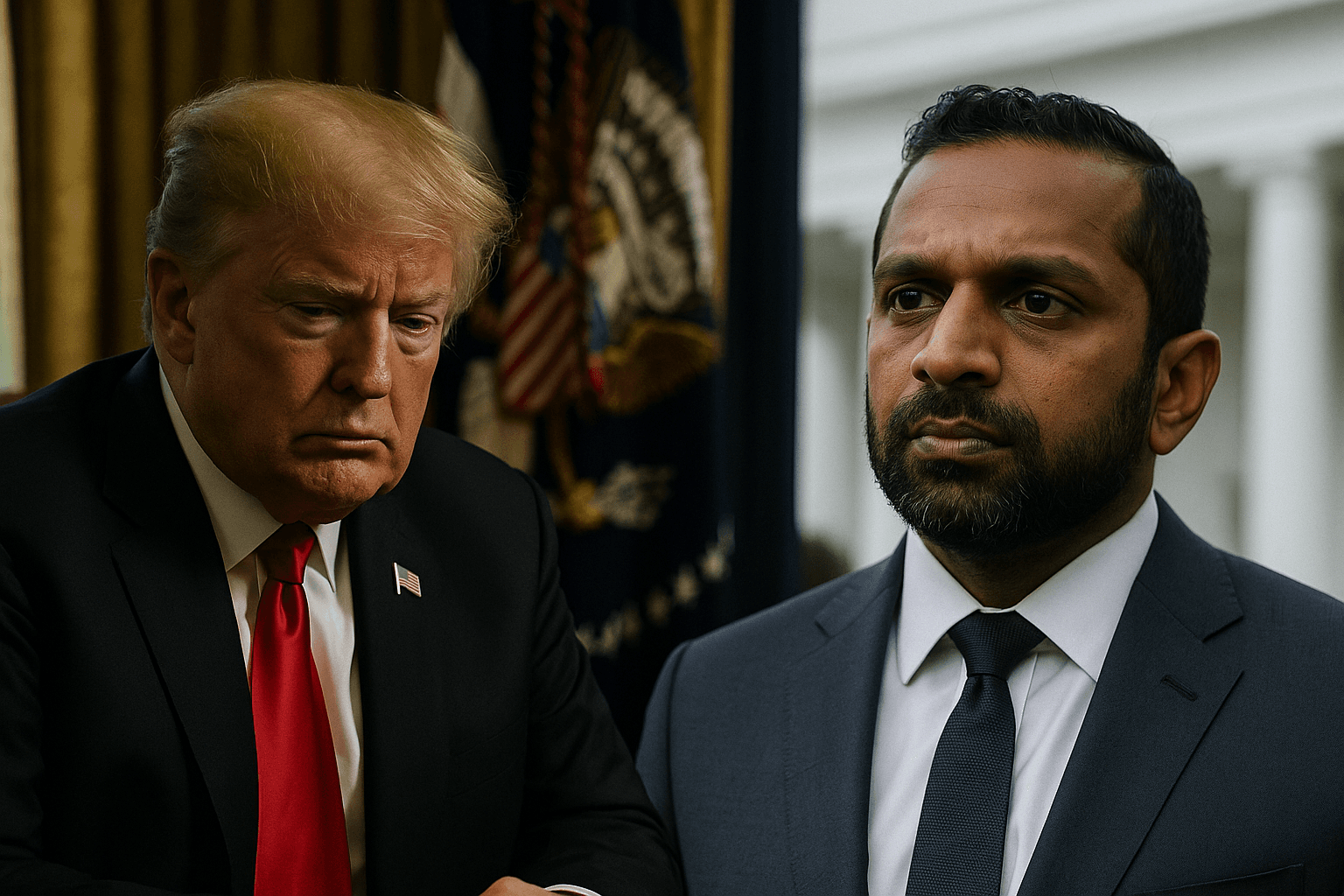Trump Reportedly Weighed Removing FBI Director Kash Patel, White House Denies
A Reuters account of an MS NOW report said President Trump considered removing FBI Director Kash Patel in the coming months, a claim the White House called "completely made up" as its press secretary posted a photo showing the two together and said the president "laughed" at the suggestion. The conflicting accounts highlight the political sensitivity of leadership changes at the bureau and the potential implications for oversight, investigations, and public trust.

On November 25, 2025 Reuters published an account of a report by the outlet MS NOW that said President Trump had considered removing FBI Director Kash Patel in the coming months, citing three people familiar with the matter. The White House responded quickly and emphatically, calling the report "completely made up." Press secretary Karoline Leavitt posted a photograph of Mr. Trump and Mr. Patel in the Oval Office and said the president "laughed" at the suggestion.
MS NOW stood by its reporting, setting up a public contradiction between the news outlet and the White House within a single news cycle. The competing narratives matter beyond immediate partisan dispute because reporting about potential leadership changes at the Federal Bureau of Investigation can prompt political turbulence, spur congressional attention, and affect bureau morale and priorities.
Removing an FBI director, or even signaling that such a move is under consideration, can shift attention inside the bureau away from day to day operations and toward questions of stability and independence. Federal law gives the president authority to remove an FBI director, but the political and institutional consequences of such an action are often decisive. Congress can respond with oversight hearings, requests for documents, and legislative proposals aimed at protecting institutional independence, and such responses frequently unfold along partisan lines.
News that a president had contemplated replacing the nation s top federal law enforcement official also carries immediate electoral and civic consequences. Voters and advocacy groups may view the move through the prism of ongoing investigations, perceived political targeting, and broader debates about accountability in government. Even when a removal is not carried out, the mere prospect can amplify calls for transparency and deepen mistrust among constituents who already view the bureau through a partisan lens.

The White House denial sought to project normalcy and to undercut the report s premise by showing a convivial public image of the president and the director. The MS NOW outlet s insistence on the accuracy of its reporting underscores a persistent tension between media organizations and political communications teams over what constitutes a credible account of internal deliberations.
For members of Congress, the episode is likely to be a prompt to press for clarity. Committees with oversight of the Justice Department and the bureau could seek briefings on the extent of any discussions, and lawmakers from both parties may weigh how leadership changes at the FBI would affect the balance between law enforcement independence and executive control.
The episode also raises personnel questions for the FBI itself. Senior agents and career staff frequently treat perceptions of independence as central to the bureau s ability to recruit personnel and to conduct investigations without fear of political interference. Whether or not the account of removal discussions proves accurate, the dispute over the reporting is likely to reverberate inside the agency and among its external stakeholders as officials and the public watch for further developments.


